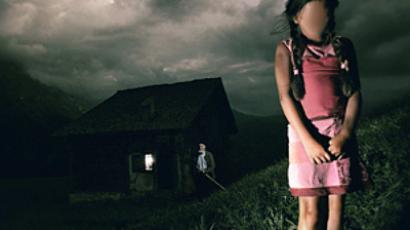Death clock counts victims of Brazil’s murder capital
Brazil’s northwest coast is a popular tourist destination, but behind Pernambuco’s plush hotel fronts, hired death squads are murdering petty thieves. Now, the charity Bodycount is trying to raise awareness about it.
The sun shining all year round and direct flights from Europe and the US add up to over a million tourists a year in Brazil’s northern state of Pernambuco, but when the sun sets, this tourist hotspot turns into a dark and deadly place.
Nearly 4,500 people were killed on the streets of the state of Pernambuco last year – which is on average 12 murders a day. According to some, those behind them are the state’s own policemen.
Eduardo Machado is a journalist turned activist who began a project called “Bodycount”. They put up an electronic counter in the state’s capital Recife to tally up the number of people murdered in twelve months.
“It’s a communication project, we want to show that there is a problem here and we need to face it in order to solve it,” Eduardo Machado says.
However, the Bodycount clock was removed when the University funding the project pulled out. Eduardo says he’s too busy to think about whether the decision was political.
“Now we want to find another person who wants to rebuild this clock counter, because it’s very important,” Eduardo Machado says.
Underlying the high death rate are sinister factors. Poverty campaigners accuse state officials of turning a blind eye to so-called death squads. Sometimes they include police officers – guns for hire targeting the poor, but purporting to clean the streets by murdering petty thieves.
“When death squads act, the victims are young, poor and black,” Eduardo Machado explains.
Death squads seem to revel in their work, often leaving a cruel and brutal signature.
“Often these death squads torture before they kill. For instance, they mutilate the sexual organs of their victims as a way of leaving their mark,” social worker Demetrios Demetrio says.
Sometimes the price of a life can be as little as a dollar or two, with hits ordered on even petty shoplifters.
“A guy that has a grocery store, for example, and has been robbed can contract a death squad to kill the poor guys that are robbing or stealing,” Eduardo Machado says.
Poverty is the root of the misery, and social workers say that until this is dealt with the body count will keep growing.
“Those who are being killed are only guilty of being poor, they don’t have many options other than committing these petty crimes which they pay for with their lives,” social worker Demetrios Demetrio says.
In addition to the clock, Eduardo’s group are making their mark in other ways – by painting body outlines in red at all the scenes of murders in the state’s capital for a month.
After just 30 days the city was covered with 80 symbolic red corpses reading “STOP”. People did react, but not the officials – and the money soon ran out.
Nonetheless, the group’s website pebodycount.com.br is still running – counting the daily grim toll of death among the poor.













